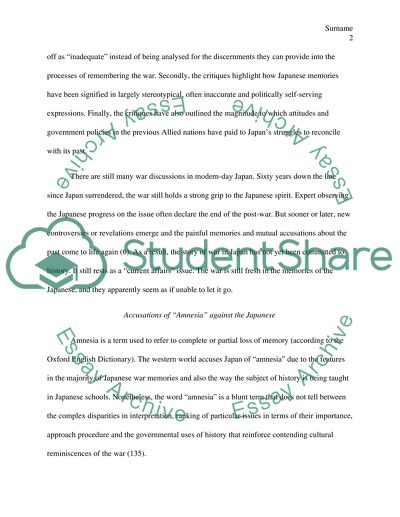Cite this document
(“Misrepresenting of Japanese War Memories Essay Example | Topics and Well Written Essays - 1500 words”, n.d.)
Retrieved de https://studentshare.org/history/1450510-misrepresenting-of-japanese-war-memories
Retrieved de https://studentshare.org/history/1450510-misrepresenting-of-japanese-war-memories
(Misrepresenting of Japanese War Memories Essay Example | Topics and Well Written Essays - 1500 Words)
https://studentshare.org/history/1450510-misrepresenting-of-japanese-war-memories.
https://studentshare.org/history/1450510-misrepresenting-of-japanese-war-memories.
“Misrepresenting of Japanese War Memories Essay Example | Topics and Well Written Essays - 1500 Words”, n.d. https://studentshare.org/history/1450510-misrepresenting-of-japanese-war-memories.


